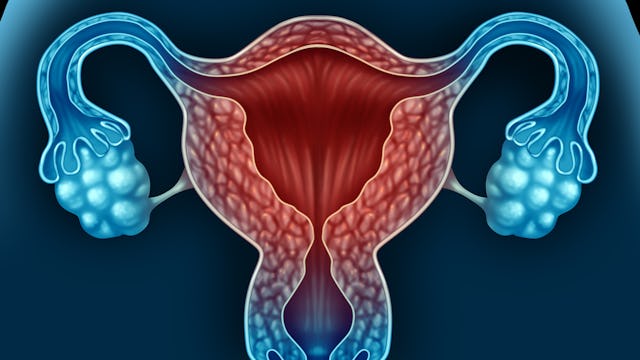There Are Finally More Answers About What Causes PCOS

PCOS is the leading cause of infertility in women
Polycystic Ovarian Syndrome, commonly known as PCOS, is the leading cause of infertility in women — affecting one in 10 women of childbearing age. Despite how common the condition is, the cause of it has been clouded in mystery for years.
Until now, thanks to a breakthrough in scientific research that finally gives millions of women everywhere some much-needed answers.
Researchers now believe PCOS is something that originates in the womb — meaning many of us who have it — myself included — have simply always had it. If that isn’t some mind-blowing yet frustrating shit, I don’t know what is.
Having PCOS means the ovaries are littered with cysts. For many women with it, this means periods are often irregular and painful. Ovulation is either infrequent or nonexistent. Some women grow an excess of facial or body hair, triggered by hormonal imbalance. Becoming pregnant can be challenging, sustaining a pregnancy can also be challenging, weight gain is difficult to manage, fatigue and acne are common, and mood changes are basically de facto.
Sometimes it feels like this disease destroys you from the inside out.
In short, having PCOS fucking sucks. Especially when doctors have been mostly unable to explain the cause behind these hormonal imbalances.
Now, however, scientists have discovered PCOS may be triggered prior to birth by excess hormone exposure. The hormone, called, anti-Müllerian hormone, can cause later puberty, infrequent ovulation, delays in becoming pregnant, and fewer offspring. The excess hormone also overstimulates a set of brain cells that raise the level of testosterone in women, resulting in PCOS symptoms. Pregnant women with PCOS were found to have a 30 percent higher level of the hormone than normal, leading scientists to consider the possibility that the hormonal imbalance in pregnancy might lead to the same condition in daughters.
If you have PCOS, perhaps this information will bring you a sense of absolution in that having this condition isn’t because of something you did or how you live your life. All we can do is figure out what form of treatment — whether it be pharmaceutical or not — works for us.
I’ve been on Metformin, an insulin-regulating drug primarily prescribed for diabetics, off and on for about three years now. Diagnosed with non-diabetic hypoglycemia (a fancy way of saying low blood sugar) when I was 10, my blood sugar and I haven’t always been on the same page. After a thorough examination, consultation, and a few tests, my OB-GYN (who is a literal angel on earth) felt regulating my insulin would most likely help my PCOS symptoms and regulate my menstrual cycle — which, until being diagnosed, had all but completely stopped.
Thankfully, Metformin works for me. I was able to conceive my daughter shortly after starting the drug and had a normal, healthy pregnancy and baby. Unfortunately, I also miscarried my second pregnancy last fall. Though PCOS symptoms can be managed with medication, the condition itself doesn’t have a cure. It’s been over six months and I’m still too terrified to “try again.” This disease, which also increases the risk of anxiety and depression, has completely crippled me mentally if not physically.
Today, May 16, is the first annual PCOS Advocacy Day in the U.S. The primary goal for this day is to ensure the federal government is investing adequate resources in understanding PCOS and providing proper funding to its research, treatments, and offering support to the millions of women affected by it with appropriate resources and programs.
To learn more or to donate to PCOS Challenge, the National Polycystic Ovary Syndrome Association, and help raise public awareness, you can visit the site here.
Sending love and a virtual hand squeeze to anyone out there who might be struggling.
This article was originally published on